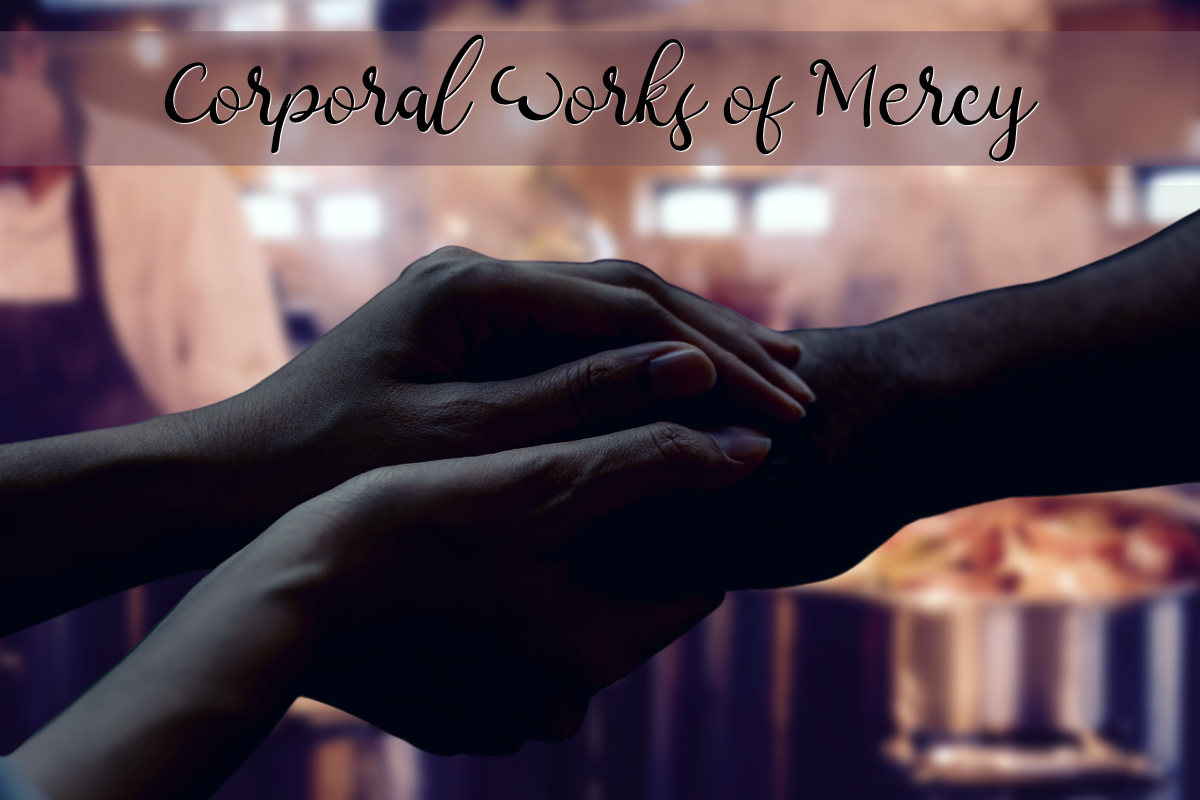“When the Son of Man comes in his glory,
and all the angels with him,
he will sit upon his glorious throne,
and all the nations will be assembled before him.
And he will separate them one from another,
as a shepherd separates the sheep from the goats.
He will place the sheep on his right and the goats on his left.
Then the king will say to those on his right,
‘Come, you who are blessed by my Father.
Inherit the kingdom prepared for you from the foundation of the world.
For I was hungry and you gave me food,
I was thirsty and you gave me drink,
a stranger and you welcomed me,
naked and you clothed me,
ill and you cared for me,
in prison and you visited me.’
Then the righteous will answer him and say,
‘Lord, when did we see you hungry and feed you,
or thirsty and give you drink?
When did we see you a stranger and welcome you,
or naked and clothe you?
When did we see you ill or in prison, and visit you?’
And the king will say to them in reply,
‘Amen, I say to you, whatever you did
for one of these least brothers of mine, you did for me.’
Then he will say to those on his left,
‘Depart from me, you accursed,
into the eternal fire prepared for the Devil and his angels.
For I was hungry and you gave me no food,
I was thirsty and you gave me no drink,
a stranger and you gave me no welcome,
naked and you gave me no clothing,
ill and in prison, and you did not care for me.’
Then they will answer and say,
‘Lord, when did we see you hungry or thirsty
or a stranger or naked or ill or in prison,
and not minister to your needs?’
He will answer them, ‘Amen, I say to you,
what you did not do for one of these least ones,
you did not do for me.’
And these will go off to eternal punishment,
but the righteous to eternal life.”
~Matthew 25:31-46
We begin this week reflecting on the scriptural justification for the corporal works of mercy–the seven charitable deeds that address the physical needs of our neighbors. As we minister to the marginalized, we are strenuously urged to treat the lowliest pauper the same as the exalted King. Saint John Chrysostom warns, “If you cannot find Christ in the beggar at the church door, you will not find Him in the chalice.”
Jesus asks us to not only see him in others, but also to be him in ourselves. Through the corporal works of mercy, our hearts become extensions of God’s love in the world. We are called to be more like the one who taught us to love our neighbors as ourselves. Our actions provide the visible and tangible presence of God’s compassion and mercy to those in need. Saint Teresa of Avila observes:
“Christ has no body now but yours. No hands, no feet on earth but yours. Yours are the eyes through which he looks compassion on this world. Yours are the feet with which he walks to do good. Yours are the hands through which he blesses all the world. Yours are the hands, yours are the feet, yours are the eyes, you are his body. Christ has no body now on earth but yours.”
When we perform the corporal works of mercy, we are transformed into instruments of God’s grace by bringing comfort, healing, hope, and love to those in need. “What does love look like?” asks Saint Augustine. “It has the hands to help others. It has the feet to hasten to the poor and needy. It has eyes to see misery and want. It has the ears to hear the sighs and sorrows of men. That is what love looks like.”
The English word “corporal” is derived from the Latin word corpus meaning “body.” We perform the corporal works of mercy by using our bodies to tend to the bodily needs of others. Those corporal acts include:
Burying the dead
Feeding the hungry
Giving drink to the thirsty
Clothing the naked (alternatively listed as giving alms to the poor)
Visiting the sick
Visiting the imprisoned
Sheltering the homeless.

